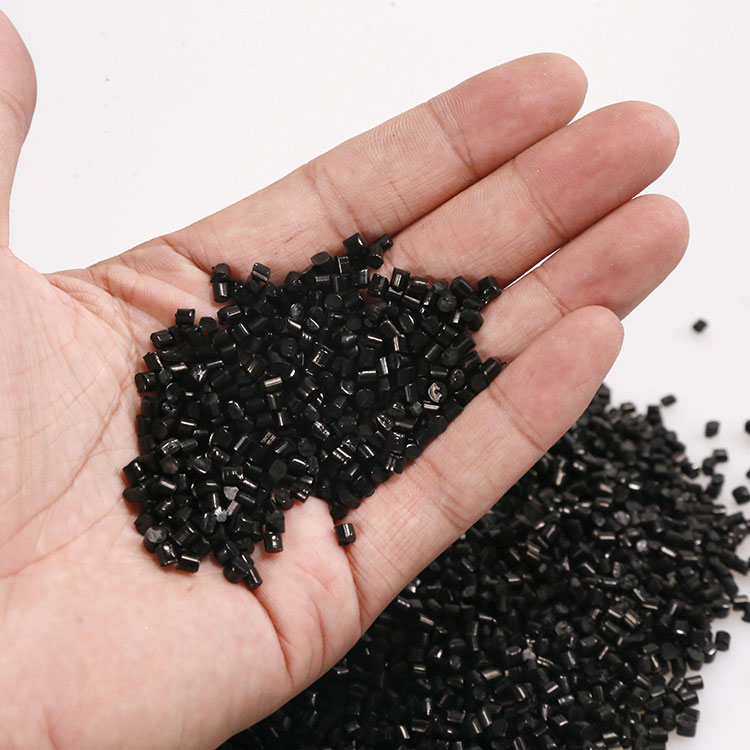Types of Plastic Pipe Masterbatch
2024-06-11
Plastic pipe masterbatch is a specialized additive used in the production of plastic pipes to enhance their properties and performance. Masterbatch is a concentrated mixture of pigments, additives, and carriers that are uniformly dispersed into a carrier resin. When mixed with the base polymer during the manufacturing process, masterbatch imparts specific characteristics to the plastic pipes, such as coloration, UV resistance, thermal stability, antimicrobial properties, or improved processability. Here's an overview of plastic pipe masterbatch, including its types, functions, benefits, and applications:
Types of Plastic Pipe Masterbatch:
1. Color Masterbatch:
- Color masterbatch is the most common type of plastic pipe masterbatch, used to impart vibrant colors and shades to plastic pipes. It contains pigments or dyes dispersed in a carrier resin, providing consistent and uniform coloration throughout the pipe.
2. Additive Masterbatch:
- Additive masterbatch contains additives such as UV stabilizers, antioxidants, antistatic agents, slip agents, flame retardants, or processing aids. These additives enhance the performance and durability of plastic pipes by providing specific properties or functionalities.
Functions and Benefits of Plastic Pipe Masterbatch:
1. Coloration:
- Color masterbatch adds aesthetic appeal to plastic pipes by providing a wide range of colors, shades, and effects, enhancing their visual appearance and brand recognition.
2. UV Resistance:
- UV stabilizer additives in masterbatch protect plastic pipes from degradation caused by exposure to ultraviolet (UV) radiation, preventing yellowing, embrittlement, and loss of mechanical properties over time.
3. Thermal Stability:
- Heat stabilizer additives in masterbatch improve the thermal stability of plastic pipes, enabling them to withstand high temperatures during processing, installation, and service without deformation or degradation.
4. Antimicrobial Properties:
- Antimicrobial additives in masterbatch inhibit the growth of bacteria, mold, and fungi on the surface of plastic pipes, reducing the risk of biofilm formation, odor generation, and microbial contamination.
5. Enhanced Processability:
- Processing aids and lubricants in masterbatch improve the melt flow properties, processing efficiency, and extrusion performance of plastic pipes, reducing energy consumption and production costs.
6. Flame Retardancy:
- Flame retardant additives in masterbatch enhance the fire resistance of plastic pipes, reducing the risk of ignition, flame spread, and smoke generation in fire-prone environments.
7. Electrostatic Discharge (ESD) Protection:
- Antistatic agents in masterbatch dissipate static electricity buildup on the surface of plastic pipes, preventing electrostatic discharge (ESD) events and reducing the attraction of dust and particulate matter.
8. Chemical Resistance:
- Chemical additives in masterbatch improve the chemical resistance of plastic pipes, protecting them from corrosion, chemical attack, and degradation when exposed to harsh environments or aggressive substances.
Applications of Plastic Pipe Masterbatch:
1. Potable Water Pipes:
- Plastic pipe masterbatch is used in the production of polyethylene (PE), polyvinyl chloride (PVC), and cross-linked polyethylene (PEX) pipes for transporting potable water, providing color coding, UV protection, and compliance with regulatory standards.
2. Drainage and Sewer Pipes:
- Masterbatch additives enhance the durability, UV resistance, and antimicrobial properties of plastic pipes used in drainage, sewer, and stormwater management systems, ensuring long-term performance and reliability.
3. Irrigation and Agricultural Pipes:
- Plastic pipe masterbatch is employed in irrigation, agricultural, and landscaping applications to improve the UV resistance, thermal stability, and chemical resistance of pipes used for water distribution, sprinkler systems, and drip irrigation.
4. Gas Distribution Pipes:
- Masterbatch additives provide flame retardancy, UV resistance, and chemical resistance to plastic pipes used in natural gas, propane, and compressed air distribution systems, ensuring safety and compliance with regulatory requirements.
5. Industrial Pipes:
- Plastic pipe masterbatch is utilized in industrial piping systems for conveying chemicals, acids, alkalis, solvents, and corrosive fluids, providing chemical resistance, thermal stability, and longevity in harsh operating conditions.
Considerations for Using Plastic Pipe Masterbatch:
1. Compatibility:
- Ensure that the masterbatch formulation is compatible with the base polymer used in the plastic pipes to avoid adverse effects on processing, performance, or physical properties.
2. Dosage and Dispersion:
- Follow recommended dosage levels and mixing procedures provided by the masterbatch manufacturer to achieve uniform dispersion of additives and consistent performance in the final product.
3. Regulatory Compliance:
- Verify that the plastic pipe masterbatch complies with relevant regulatory standards, industry specifications, and environmental regulations applicable to the intended application and end-use market.
4. Quality and Reliability:
- Source plastic pipe masterbatch from reputable suppliers with a track record of producing high-quality, reliable formulations and providing technical support, certification, and quality assurance.
5. Testing and Validation:
- Conduct thorough testing and validation of plastic pipes containing masterbatch additives to ensure they meet performance requirements, durability standards, and customer expectations before commercialization and deployment.
Conclusion:
Plastic pipe masterbatch is a specialized additive used in the production of plastic pipes to enhance their properties, performance, and appearance. Whether for coloration, UV resistance, thermal stability, antimicrobial protection, or other functionalities, masterbatch additives play a vital role in optimizing the performance and durability of plastic pipes across various applications and industries. By selecting the right type of masterbatch, following proper usage guidelines, and ensuring regulatory compliance, manufacturers can produce high-quality plastic pipes that meet the demanding requirements of modern infrastructure, construction, and utility systems.



